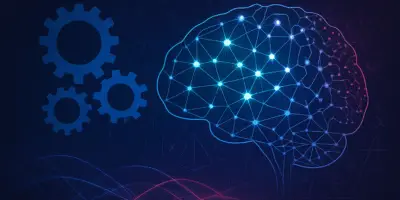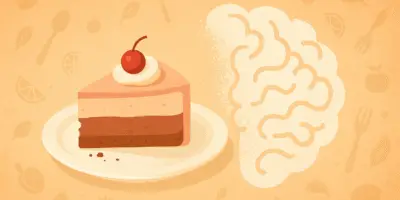We’ve all seen that classic movie scene: someone gets knocked on the head, blacks out, and wakes up asking, “Who am I? Where am I? What happened?” Without any scans or tests, we immediately know—they’ve got amnesia. And according to countless films, the cure is simple: just hit them on the head again, and everything magically returns to normal.
Honestly, this trope has been used so many times that many people genuinely believe it’s legitimate medical advice. But is there any truth to this? Can a second blow to the head really restore lost memories? And do films portray memory loss accurately, or is reality completely different?
Table of Contents
Memory Isn’t Just One Thing
Let’s get something straight right off the bat—the idea that someone takes a hard knock to the head and forgets their identity, family, and entire past is actually incredibly rare. Why? Because memory isn’t just one single entity.
Memory is divided into multiple components, and brain injuries typically don’t affect memory as one unified system. Injuries usually impact one or two specific aspects of memory. For instance, brain injuries don’t generally have a major effect on long-term memory, which means if someone unfortunately experiences a concussion, they’ll likely still remember things from their past—childhood friends, school days, and so on.
What’s more commonly affected is short-term memory, which helps us store new daily events. Someone with this type of injury might struggle to learn new information or remember recent events. They might forget details of their current day and face challenges like:
- Forgetting important details during conversations
- Being uncertain about things they’ve just done
- Asking the same questions repeatedly
- Misplacing personal items like keys or phones (though let’s be real—we all do this occasionally even with perfectly healthy brains!)
Other Types of Memory Impairment
Beyond short-term memory, brain injuries can affect what’s called prospective memory—essentially your brain’s built-in reminder system. This is the mental function responsible for remembering to remember. It manages your plans, schedules, and daily tasks, and even reminds you that you made those plans in the first place.
While brain injuries tend to impact newer memories more than older ones, some people occasionally struggle to recall certain long-term memories too, though usually in a milder way. You might know someone is your cousin but temporarily forget their name.
Interestingly, people often forget the injury itself—what doctors call “injury memory.” And it’s worth noting that physical injuries aren’t the only cause of memory problems; various mental health conditions can affect memory too.
The Second Hit: Helpful or Harmful?
Now, about that second blow to the head that supposedly fixes everything…
Around 40% of people surveyed genuinely believe that if someone with memory loss gets hit on the head a second time, everything will return to normal—just like we used to fix old TVs with a good whack when the picture went fuzzy.
But here’s the plain truth: this is completely mythical and has zero scientific basis. The second hit doesn’t restore memory or fix the confusion caused by the first injury. In fact, it’s quite the opposite—a second blow not only fails to treat memory loss symptoms but could potentially be fatal.
Why? Because after the first hit, the brain is in its most vulnerable state. It’s already unbalanced, and a second impact could cause brain swelling that might lead to death. Repeated strong blows to the head significantly increase mortality risk because the injured brain is far more susceptible to damage.
Where Did This Myth Come From?
If the “second hit cure” is not just wrong but dangerous, why is it so widely believed? Where did this idea originate?
According to numerous sources, this concept first appeared in silent films and novels in the early 19th century. What made things worse was that the idea was initially supported by some contemporary scientists and physicians. There were even scientific writings focused on the brain and memory that endorsed this same concept—everyone just piling onto the bandwagon.
The first scientific endorsement of this “double treatment” supposedly came from French physician Xavier Bichat, who believed the brain consisted of two identical halves in both structure and function. From this belief came his theory that if a person was injured on one side of their head, the brain would lose balance and experience mental disturbance. The “treatment,” in his view, was to hit the other side to restore balance.
These opinions stemmed from prevailing beliefs in the early 19th century that concussions or brain injuries didn’t cause structural or neurological damage but only affected thinking and memory. Between 1837 and 1901, scientists viewed the brain as a machine—if there was any dysfunction due to injury, simply “adjusting the gears” would fix everything (just like hitting that old TV).
This belief remained dominant until the mid-19th century, when memory specialists began to realize that any blow to the head could potentially destroy memory capabilities completely, and that a second blow had no therapeutic value—in fact, it could be fatal.
But because this myth had been circulated for so many years, it became deeply entrenched and difficult to dispel.
Are There Any Beneficial Brain Injuries?
Does this mean there’s absolutely no benefit ever? Should you never try hitting someone you know who’s lost their memory on the head?
The truth is, there have been some instances—but they weren’t explicit blows to the head. They were surgical operations within the brain or minor skull injuries.
For example, there was a 70-year-old woman who underwent brain surgery to remove tumors. Amazingly, after the surgery, her personality changed 180 degrees, according to her husband of over 50 years. She had always been a strict, bad-tempered person, constantly angry and yelling at everyone. But after brain surgery, there was a noticeable change in her personality.
This woman’s case isn’t the only one with such dramatic changes. A 2007 study conducted on soldiers suffering from brain injuries discovered that these soldiers, along with others who experienced damage to certain areas of the skull, became less susceptible to depression compared to before their injuries. The injuries had somehow affected the brain regions controlling emotions.
But it’s important to understand that these are exceptional cases, not the norm. We should never downplay the seriousness of brain injuries, as the outcomes are typically negative and dangerous.
The Bottom Line on Memory Loss and Brain Trauma
Hollywood has given us many memorable scenes of characters regaining their memories after a second knock on the head, but the scientific reality tells a completely different story. Memory is complex, with various components that can be affected differently by trauma, and a second injury is more likely to cause harm than healing.
If there’s one thing to take away from all this, it’s that brain injuries should always be taken seriously and treated by medical professionals—not by following the questionable examples we see in movies.
So next time you’re watching a film where someone magically recovers their memories after a second bump on the noggin, remember: that’s pure fiction, not science. The human brain is far more complicated—and far more fragile—than Hollywood would have us believe.
Brain health is nothing to take lightly. If you or someone you know experiences a head injury, seek proper medical attention right away rather than waiting for magical, movie-style solutions that simply don’t exist in real life.



